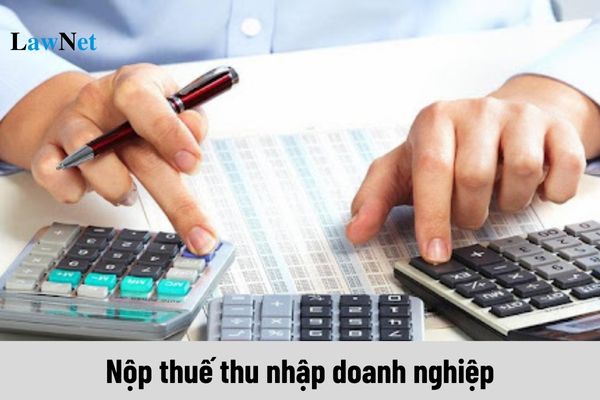What incomes are subject to personal income tax from capital transfer in Vietnam?
How to declare personal income tax on income from capital transfer in Vietnam?
Based on Clause 4, Article 26 of Circular 111/2013/TT-BTC, the declaration of personal income tax for income from capital transfer (excluding securities transfers) is as follows:
- Resident individuals transferring contributed capital must declare tax for each transfer, regardless of whether income arises or not.
- Non-resident individuals with income from transferring contributed capital in Vietnam are not required to declare tax directly with the tax authority. Instead, the organization or individual receiving the transfer is responsible for withholding tax according to the guidelines in Point e, Clause 1, Article 25 of Circular 111/2013/TT-BTC and declare tax for each occasion it arises.
- Enterprises handling the procedures to change the list of capital contributing members in case of capital transfer without providing proof that the individual transferring the capital has fulfilled tax obligations must declare and pay tax on behalf of the individual.
In the case where an enterprise pays tax on behalf of the individual transferring the capital, the enterprise must declare a substitute personal income tax return.
The enterprise declaring on behalf must note "Declare on behalf" before the phrase "Taxpayer or Legal Representative of the Taxpayer" and the declarer must sign, clearly state their full name, and affix the company's seal.
On the tax calculation documents, the tax receipt must still clearly indicate the taxpayer as the individual transferring the contributed capital (in the case of resident individual transfers) or the individual receiving the transferred capital (in the case of non-resident individual transfers).

What incomes are subject to personal income tax from capital transfer in Vietnam? (Image from Internet)
What incomes are subject to personal income tax from capital transfer in Vietnam?
Based on Clause 4, Article 2 of Circular 111/2013/TT-BTC, incomes subject to personal income tax from capital transfer include:
- Income from transferring contributed capital in limited liability companies (including one-member limited liability companies), partnerships, business cooperation contracts, cooperatives, people's credit funds, economic organizations, and other entities.
- Income from transferring securities, including: income from transferring shares, share purchase rights, bonds, treasury bills, fund certificates, and other securities as stipulated in Clause 1, Article 6 of the Securities Law 2019. Income from transferring shares of individuals in joint-stock companies as stipulated in Clause 2, Article 6 of the Securities Law 2019 and Article 120 of the Enterprise Law 2020.
- Income from transferring capital in other forms.
How to calculate personal income tax on income from transferring contributed capital in Vietnam?
Based on Clause 1, Article 11 of Circular 111/2013/TT-BTC, the basis for calculating personal income tax on income from transferring contributed capital is taxable income and the tax rate.
Details are as follows:
- Taxable income: Taxable income from transferring contributed capital is determined as the transfer price minus the purchase price of the transferred capital and reasonable related expenses to generate income from the capital transfer.
In cases where enterprises account in foreign currency, individuals transferring capital in foreign currency shall determine the transfer price and purchase price of the transferred capital in foreign currency.
In cases where enterprises account in Vietnamese Dong and individuals transferring capital in foreign currency, the transfer price must be determined in Vietnamese Dong at the average exchange rate on the interbank foreign currency market announced by the State Bank of Vietnam at the time of transfer.
+ Transfer price
The transfer price is the amount received by the individual according to the capital transfer contract.
In cases where the transfer contract does not stipulate a payment price or the payment price stated in the contract does not match market prices, the tax authorities have the right to set the transfer price according to tax management law.
+ Purchase price
The purchase price of the transferred capital is the value of the contributed capital at the time of capital transfer.
The value of the contributed capital at the time of transfer includes: the value of capital contribution at the time of establishing the enterprise, the value of additional capital contributions, the value of capital resulting from buybacks, and the value of capital incremented from extraordinary items. Specifically:
++ For the capital contribution at the time of establishing the enterprise, it is the value at the time of capital contribution. The value of the capital contribution is determined based on accounting records, invoices, and required documents.
++ For additional capital contributions, it is the value of the additional capital at the time of additional capital contribution. This value is determined based on accounting records, invoices, and required documents.
++ For capital resulting from buybacks, it is the purchase value of the capital at the time of the buyback. The purchase value is determined based on the capital buyback contract. If the buyback contract does not have a payment price or if the payment price in the contract is not consistent with market prices, tax authorities have the right to set the purchase price according to tax management law.
++ For capital incremented from extraordinary items, it is the value of the extraordinary items incremented to the capital.
+ Related expenses deductible in determining taxable income from capital transfer are the reasonable actual expenses incurred related to generating income from the capital transfer, with valid invoices and documents as required. Specifically:
++ Expenses for completing necessary legal procedures for the transfer.
++ Fees and charges paid to the state budget when performing the transfer procedures.
++ Other expenses directly related to the capital transfer.
- Tax rate
The personal income tax rate on income from transferring contributed capital applies at a flat rate with a tax rate of 20%.
- Time to determine taxable income
The time to determine taxable income is the time the capital transfer contract takes effect. For cases of capital contribution using contributed capital, the time to determine taxable income from capital transfer is the time the individual transfers or withdraws capital.
- Tax calculation method
| Personal income tax payable | = | Taxable income | × | Tax rate 20% |





- What are 02 methods for writing a self-assessment for members of Communist Party of Vietnam who hold leading positions in 2024? How much is the membership fee for CPV members in political-social organizations?
- Is there an official adjustment to increase pension in Vietnam from July 1, 2025? Does increasing the pension affect the personal income tax in Vietnam?
- What are 02 methods for writing Form 02B on limitations, shortcomings, and causes in the self-assessment for members of Communist Party of Vietnam for the end of 2024? How much is the membership fee for CPV members in armed forces?
- What are 02 ways to write limitations, shortcomings, and causes in the Form 02A on year-end self-assessment for members of Communist Party of Vietnam 2024? Which incomes are bases for determining membership fees?
- How to determine the effective tax rate and top-up tax percentage in Vietnam?
- Will there be penalties imposed for supplementing a tax return before a tax audit in Vietnam?
- When shall a fine which is 2 times as much as the amount of evaded tax be imposed for the act of tax evasion in Vietnam?
- What are cases of distribution of corporate income tax in Vietnam?
- Is a person who assists in tax evasion subject to publishing of information about taxpayers in Vietnam?
- What are conditions for not imposing anti-dumping duties on products whose dumping margin are not more than 2 % of export price in Vietnam?

